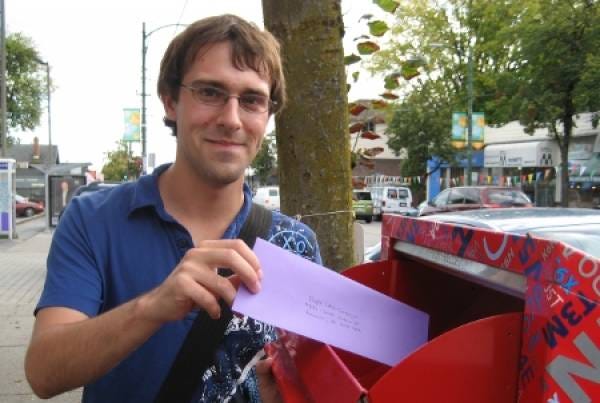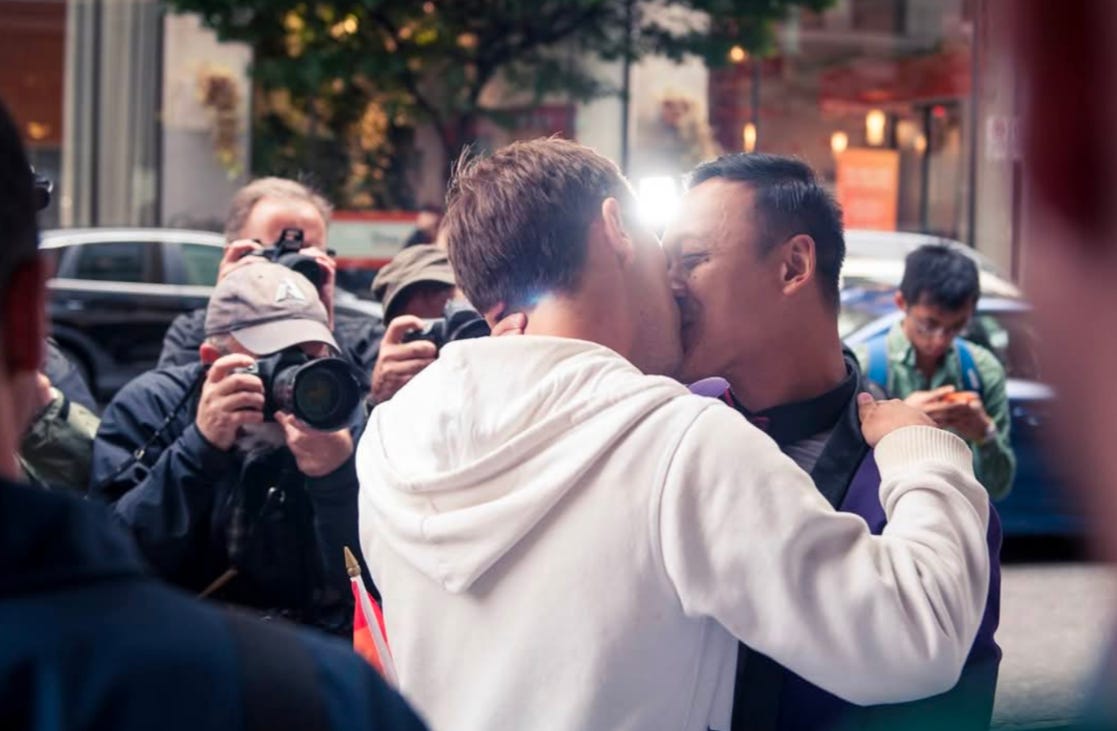The internet was a life-changer when I was a young gay teen growing up in a small town. When I was first realizing that I was different than the other boys my age, I had almost no reference points for what I was experiencing. Our internet at home was dial-up, and if anyone needed to use the phone we had to disconnect. Resources online were hard to find, and that was if you even knew what to look for.
Instead, I turned to the most accessible option available for a young queer person at the time — books. My middle school library had exactly three books that referenced queer people that I could find. The one that stays in my memory to this day was The Drowning of Stephen Jones by Bette Greene, published in 1991.
“As her mother battles a citizens' group that wants to ban all ‘anti-Christian’ literature from the public library, Carla faces her own battle of torn loyalties when her boyfriend starts persecuting the homosexual owners of an antiques shop.”
The story is a tragedy. As the title suggests, Stephen Jones, one of the gay owners of the shop, is drowned. The mystery is why, and by whom. The shocking twist in the story — spoiler ahead — is that it had nothing to do with his sexuality. For a homosexual character to have a more complicated backstory than just “murdered because gay” was avant garde for the time.
A novel where the character I most related to dies horribly was not exactly the hopeful, inspiring narrative teenage me was looking for. This likewise goes for most of the mainstream queer stories available at the the video rental store. My Own Private Idaho, Latter Days, Boys Don't Cry, Mysterious Skin, A Home at the End of the World — great films, but hardly uplifting stories. The closest I found to a positive story was But I'm a Cheerleader, a movie about queer characters escaping from a conversion therapy camp.
There were no community events or Pride celebrations anywhere near my hometown at the time. I felt isolated and confused, with no one to turn to or talk to. It was ultimately the school librarian, who had seen me checking out gay themed books, who pointed me in the right direction. She introduced me to a printed resource guide produced by The Centre — formally known as the Pacific Foundation for the Advancement of Minority Equality and operated as The Gay and Lesbian Centre — today known as Qmunity.
That resource guide had listings for two community organizations in nearby Vernon — the North Okanagan Gay and Lesbian Organization (NOGLO) and the Youth Gay and Lesbian Organization (YouthGLO).
The first time I attended YouthGLO was as terrifying as it was exhilarating. I did not yet have a driver's licence, so I convinced a friend of mine to take the Greyhound bus with me to Vernon. It was there I first met a handful of other queer and trans folk. That day in the basement of a local community centre we made crafts, and I made friends — some of which I'm still friends with today.
It was there that I learned of some of the big achievements queer people had made over the years — things that were definitely not taught in school.
I learned that one of the reasons I could even find queer books in my local library was because of the activism of Jim Deva and Little Sister's Bookstore, which fought Canada Customs blocking queer content coming in to Canada as “obscene”. I learned about the battle to save the lives of people with HIV/AIDS from people who had lived through it. I found out about all the work being done to allow for same-sex marriages from people who would be some of the first to tie the metaphorical knot once it was passed.
It feels strange now to be able to search up these events for this post, because I had no such ability back then. I learned these things from the people who had been a part of these events sharing their wisdom and telling their stories.
Having found a resource I so sorely needed, I wanted to help others have the same opportunity. I connected with the community centre in my hometown, and we started a drop in group styled in the same way as YouthGLO. I phoned The Centre — with a landline — and ordered all of the pamphlets they could ship me. We stocked queer books and movies people could check out, and offered movie nights people could attend if it was not safe to watch a queer film at home. For a couple hours, once a week, we had carved out a space that was ours, to share our stories, and learn about the activists and advocacy that came before us.
Even as the internet became more accessible — I got a cell phone when I was 18 and by the time I was 19 dial-up was becoming a rarity — it was always more powerful for activism to be rooted in community. Once I arrived in Vancouver my first trip downtown was to Davie Street and Little Sister's Bookstore. At the counter was none other than Jim Deva himself, who I nervously introduced myself to. It felt like a pilgrimage for my queer heart.
When I think of the many achievements over the last couple decades, they are almost all rooted in community coming together. The internet may be a tool to get word out, but it is the act of showing up in person that has had the greatest impact.
In 2010, in response to an epidemic of suicides among queer youth, we organized a vigil in Vancouver. We made a point of having local community organizations come and speak about the work they were doing, and invite people to become involved. While many came to express their grief, people had the option to take action.
When we sought to have anti-homophobia and anti-transphobia policies implemented in all schools in BC, we asked people to write letters — actual, physical letters — because a written letter in an envelope is harder to ignore than an email. Hundreds of them arriving in a Minister's mailbox makes an impact.

When Russia introduced measures to criminalize references to homosexuality, including public displays is affection, we rallied in front of the Russian Consulate and committed an act of defiance and resistance — we kissed.

Throughout history, coming together as a community — whether in small, supportive groups, grand protests or anywhere in-between — has driven change. The Pride movement stemming from the Stonewall Riots and Bathhouse Raids have been one of the most enduring examples. The existence of queer archives and bookstores create resilience at a time when the internet is becoming less and less reliable.
As I find myself spending less time on social media, I also find myself thinking about the ways to organize that do not involve online platforms. I often come back to something that climate activist Tzeporah Berman said at a talk I attended in 2023. She was asked about activism in the digital age, and talked about how, in part because of reliance on the internet to facilitate much of the advocacy in the modern era, our “organizing muscle” has become weaker. We haven't maintained the same kinds of community connections and methods to mobilize that were effective pre-internet.
Right now the internet is becoming a much duller tool than it was. It is clear that content is being heavily manipulated and censored, much like how Canadian Border Services once blocked queer content from entering Canada. Access to information and histories is being pushed further out of reach. The dominant narratives online can be very different from what you hear when you actually talk to people on their doorsteps.
While the internet has been, and will likely continue to be, a useful tool, I do not believe it will continue to serve the dominant role it once did. It has become too unreliable, too easily manipulated, and too toxic to reach the average person. It is also too easy to track and tear down someone fighting for change.
I think it's time to start meaningfully working out our organizing muscle again, and finding ways of analog activism — the kind that was so effective only a few decades ago.








Great piece Ryan.
Relatedly, I think our political adversaries know this well. The Convoy was so effective because of their willingness to organize and show up in person in Ottawa. It scared politicians as only a major mobilization can. It's why (until then) popular COVID precautions quickly fell apart across the country. At the same time, progressives (for the most part, BLM being a major exception) maintained social distancing and isolation, staying online.
But we're also seeing attacks on exactly that sort of capacity for in person LGBTQ community that you first connected to. The Fifth Estate's latest on the Shadow War on Libraries is a good expose on this: https://www.cbc.ca/player/play/video/9.6640594